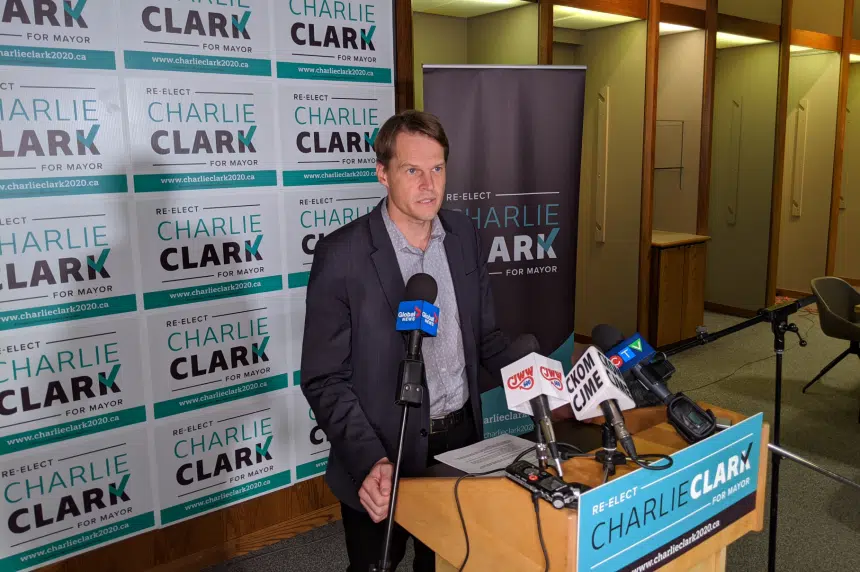Charlie Clark is looking at a four-point plan to drive down property tax increases, if he is to retain his seat as mayor in Saskatoon’s upcoming election.
Taking a different approach than candidates Rob Norris and Don Atchison— who are both promising little, to no tax hike. Clark is hoping a plan with benefits realised years later, and for years to come, will resonate with voters.
“The way we do it is through our budgeting process, through driving our administration to find cost-cutting measures and to find efficiencies,” Clark said.
“We’ve brought in the lowest tax increases in a decade and we’ve brought down the tax increases from previous years.”
While Atchison promises not to increase property taxes and Norris promises a one per cent increase, Clark refused to reveal any increase goal he has in mind.
“I know that by throwing out a number during an election, it becomes very difficult because you have to look at the budget itself and do it,” Clark said.
The plan centres around four main pillars— efficient growth, environmental innovation, embracing technology and leveraging partnerships to lessen the city’s financial burden.
Clark touted his record of introducing increases that were an average of 1.25 per cent lower than previous councils over the past four years. The tax increase for 2021 is pegged at 3.41 per cent.
With a plan to grow the population to 500,000 people, Clark is looking to build Saskatoon upwards and outwards by getting more people in the downtown core.
“We overhauled the permit system for the downtown,” Clark said. “We also built-in some strategic incentives to help facilitate developments. Now we have over 1,000 units that have been proposed in the city centre.”
Many of the items listed on Clark’s plan involve plenty of initial capital investments, with savings realised later on, something Clark said he’s done before.
“Right now is the best time to be building on those partnerships and those opportunities to get funding for capital, but then building models that reduce the operating pressure,” Clark said.
“It’s the same way we’ve been working with partners, like on Gordie Howe Sports Complex or Merlis Belsher Place. We just had to put in $4 million of capital and bear no operating costs.”
Expanding the landfill gas project, supporting home and business energy retrofits, along with overhauling the city’s fleet to electric vehicles are ways Clark hopes to save money through environmental innovation.
Clark further hopes to provide savings by replacing old software used at City Hall with a master database, something he said will save $40 million in the first six years after it is implemented.
“My strategy is to be realistic, to understand how the budget works, to give directions to our administration, to be aggressive about finding innovations and finding efficiencies,” Clark said.
“But I also know residents value the services we provide, and we have to find that balance in terms of keeping our quality of life up.”











